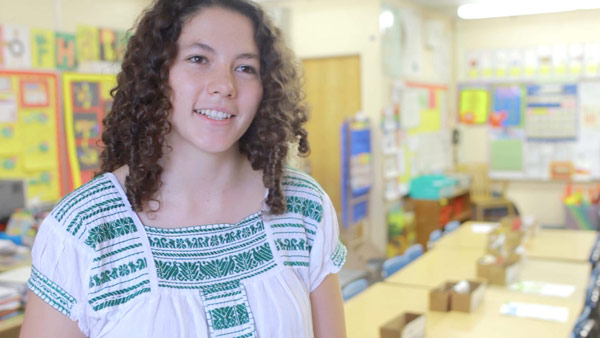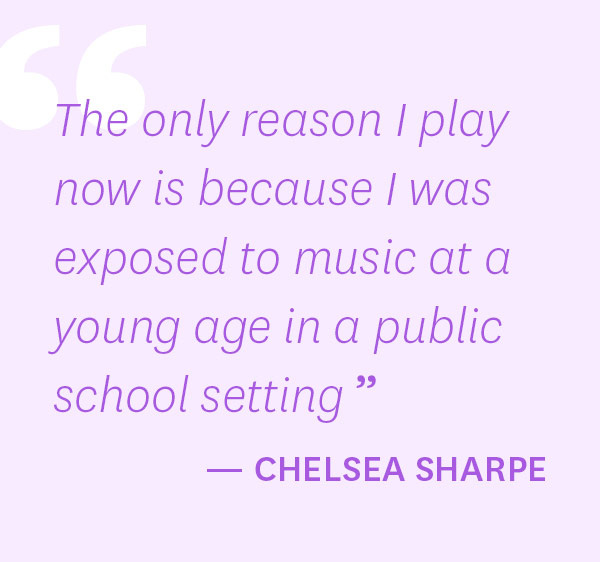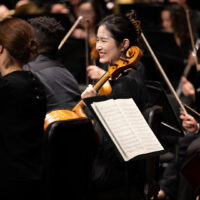
Why Should Musicians Mentor?
By Max Kapur
“The only reason I play now is because I was exposed to music at a young age in a public-school setting,” said USC mentor Chelsea Sharpe MM (’17). When she arrived at USC Thornton to study violin performance, she realized she wanted to pay it forward and work with students in the public schools in the University Park area.
“At a young age, your imagination is limitless,” she said. “It’s exciting to throw this exciting information at the children and see them light up and make it their own.”
Susan Helfter, director of USC Thornton’s Community Engagement Program, said Sharpe’s experience is not uncommon. “So many of our Thornton mentors are reminded why they fell in love with music in the first place,” she said. “They get to see young people discovering something new about music, and that rekindles their own excitement about what they do.”
Each year, USC Thornton’s Community Engagement Program includes about a hundred mentors from all divisions and degree levels at the school. Because the organization’s programming is flexible, including short-term and yearlong assignments as well as opportunities for classroom and one-on-one instruction, USC Thornton students with no teaching experience and classroom veterans alike are welcome to join.

Marta Olson (’16) said she returned to USC Thornton’s Community Engagement Program throughout her four years of undergraduate study because she felt her work was making a true difference. As an upperclassman, she taught a combined third- and fourth-grade choir at St. Agnes Catholic School. “One treat of getting to teach for multiple years is that I get to see from one grade to another how much children develop,” she said. Witnessing her students’ growth firsthand reminded Olson of the difference music education can make for young students.
Student mentors often discover that teaching music quells the anxieties performing musicians sometimes struggle with. “The mentors see that engaging with others is part of what it means to be a musician, and this is an opportunity to do that,” Olson said. “Mentors have a sense of responsibility to others with music. They see a lot of people who don’t have the opportunities they had in music and want to help open this door for the young students in our community who are so smart, creative and engaged.”
Or, in the words of mentor Rose Campion (’17): “I feel hopeful for the future.”
Each week this November, we showcase the incredible impact that USC Thornton’s Community Engagement Programs are having on local schools.


